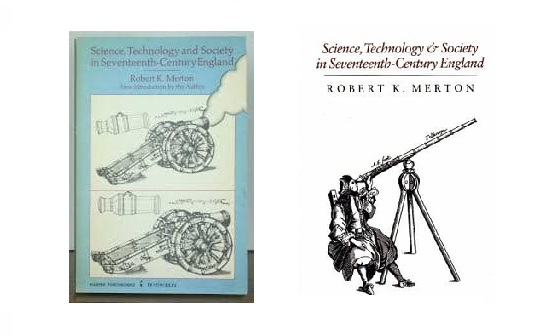서적소개
17세기 영국의 과학, 기술과 사회
(Science, Technology and Society in 17 Century England)
로버트 K. 머턴, 머튼 / Humanities Press / 1978
1935년 로버트 머튼 (Robert K. Merton, 1910 ~ 2003)이 미국 하버드 대학에서 ‘17세기 영국의 과학, 기술과 사회 (Science, Technology and Society in Seventeenth Century England)’라는 제목의 박사학위 논문을 제출한 것이 ‘과학사회학의 본격적인 효시’라고 알려져 있다. 당시에는 이미 역사, 철학 분야에서는 과학사, 과학철학이 전문 분과로서 정립돼 있어 머튼은 ‘과학사회학’ 분야의 새 장을 열었다.
○ 저자소개 : 로버트 K. 머턴 / 머튼 (Robert K. Merton, 1910 ~ 2003)

사회학자 로버트 K. 머튼 (Robert K. Merton, 1910년 7월 4일 ~ 2003년 2월 23일)은 미국의 사회학자로 기능주의 입장에서 현재적 (顯在的) 기능 이외에 잠재적 기능의 중요성을 지적하였다. 또한 관료제의 역기능에 대한 체계적인 연구를 최초로 하였다.
머튼은 미국 필라델피아에서 출생, 템플대학을 거쳐 하버드대학을 졸업하였다. 1939~1941년 털레인대학 교수로 재직하였고, 1941년 컬럼비아대학 사회학 주임교수가 되었다. M. 베버, P. A. 소로킨, V. 파레토 등의 영향을 받아 이론사회학을 추구하면서도 경험적 조사에 관심을 보여, 중(中)범위 이론을 제창하고 이론과 조사와의 통합을 역설하였다. 또, 기능주의 입장에서, 현재적 (顯在的) 기능 이외에 잠재적 기능의 중요성을 지적하였다. 또한 관료제의 역기능에 대한 체계적인 연구를 최초로 하였다.
주요저서로 ‘대중설득’ (Mass Persuasion, 1946), ‘사회이론과 사회구조’ (Social Theory and Social Structure, 1949), ‘사회이론과 기능주의적 분석’ (Social Theory and Functional Analysis, 1969), ‘사회적 이중가치에 관하여’ (Social Ambivalence and Other Essays, 1976) 등이 있다.
○ 내용
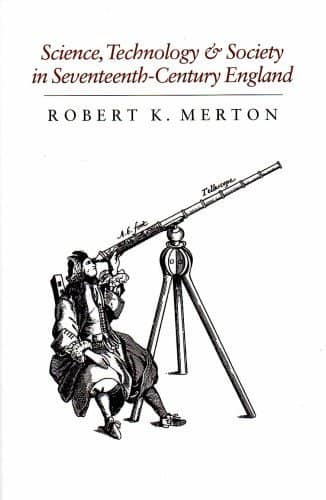
17세기 영국은 소위 근대 ‘과학혁명’의 진원지로서 과학기술이 비약적 발전이 있었다. 아이작 뉴턴 (1642-1727), 로버트 보일 (1627-1691), 윌리엄 하비 (1578-1657), 에드먼드 핼리 (1656-1742) 등 기라성 같은 과학자들이 당시 영국에서 배출됐고, 광업, 항해, 군사, 직물 분야의 기술이 크게 발전했다.
머튼은 17세기 영국에서 그렇게 과학기술이 비약적으로 발전하게 된 이유가 무엇일까라는 질문을 던지고, 그 질문에 대한 답변으로 당시 과학기술의 발전이 청교도의 종교적 가치와 연관돼 있으며, 과학 연구의 방향이 사회경제적 요인에 큰 영향을 받았다는 명제를 제시했다.
머튼은 이런 과학 특유의 규범구조와 관련지어 과학 제도와 과학자들의 행동을 이해하기 위한 작업을 계속했다. 예를 들면, 과학자들 사이에 벌어지는 우선권 (priority)―최초의 발견자라는 공인―을 둘러싼 치열한 경쟁과 갈등, 분쟁에 주목했다.
과학자들의 경쟁적인 행태는 사회제도로서 과학에 내재돼 있는 창의성 (originality)의 가치와 공유주의의 규범으로부터 파생된 결과라고 한다. 확증된 지식의 확대라는 과학의 사회적 기능을 수행하기 위해서 창의성 (originality)이 대단히 중시된다.
동시에 공유주의의 규범으로 인해 과학자들은 자신의 과학적 발견에 대해서 누릴 수 있는 유일한 권리가 독창성에 대한 인정, 즉 우선권 밖에 없는 상황이기 때문에 치열한 경쟁이 벌어지는 것이고, 극단적으로는 표절, 자료 위조, 비방 등의 일탈행위까지 야기될 수 있다는 것이다.
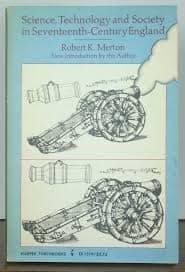
○ 출판사 서평
– First published in 1938 as volume IV, part 2 of Osiris: Studies on the history and philosophy of science, and on the history of learning and culture.
– With a new introduction by the author (emeritus, sociology, Columbia U., New York City), as well as the prefaces from the first edition in 1938 and a 1970 reprint, this classic work established the field of the sociology of science. The focus of the study is the role of Puritanism in unintentionally providing social and cultural support for newly emerging science in 17th-century England at a time when religion and science were considered irreconcilable.
– Scientific Revolution, drastic change in scientific thought that took place during the 16th and 17th centuries. A new view of nature emerged during the Scientific Revolution, replacing the Greek view that had dominated science for almost 2,000 years. Science became an autonomous discipline, distinct from both philosophy and technology, and it came to be regarded as having utilitarian goals.
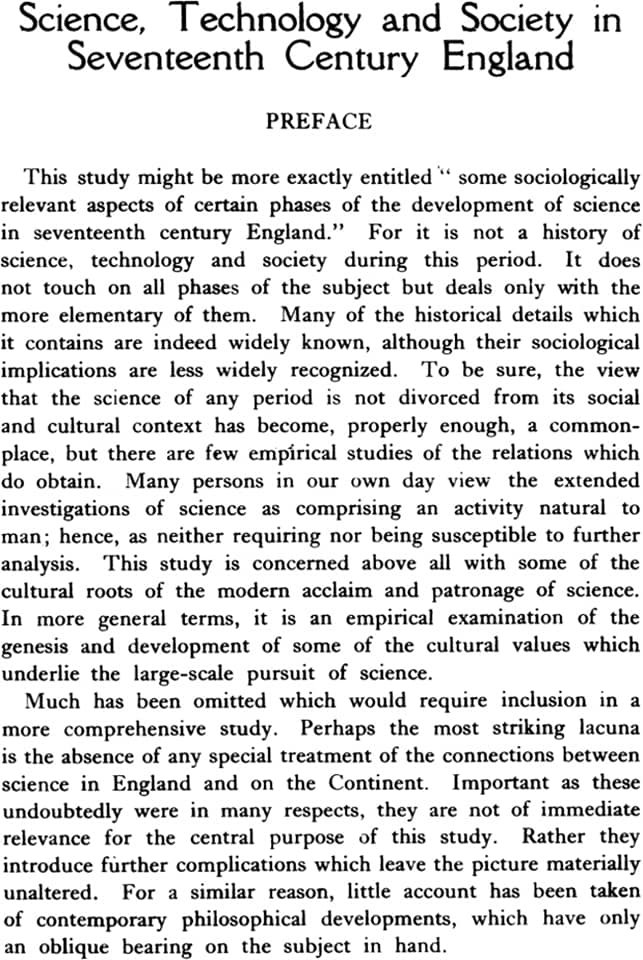
By the end of this period, it may not be too much to say that science had replaced Christianity as the focal point of European civilization. Out of the ferment of the Renaissance and Reformation there arose a new view of science, bringing about the following transformations: the reeducation of common sense in favour of abstract reasoning; the substitution of a quantitative for a qualitative view of nature; the view of nature as a machine rather than as an organism; the development of an experimental, scientific method that sought definite answers to certain limited questions couched in the framework of specific theories; and the acceptance of new criteria for explanation, stressing the “how” rather than the “why” that had characterized the Aristotelian search for final causes.
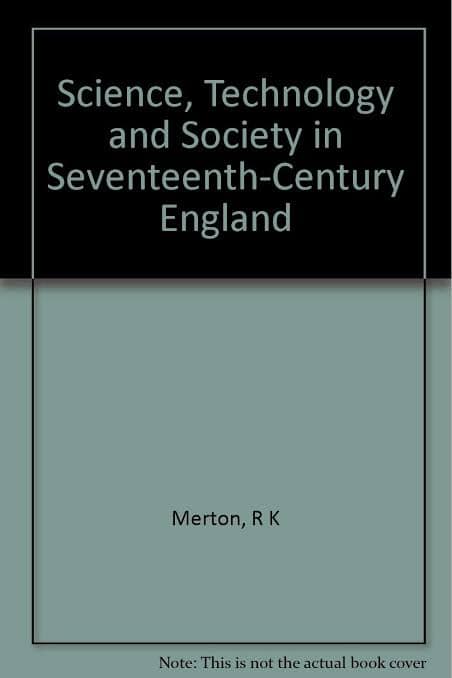
크리스천라이프 편집부

